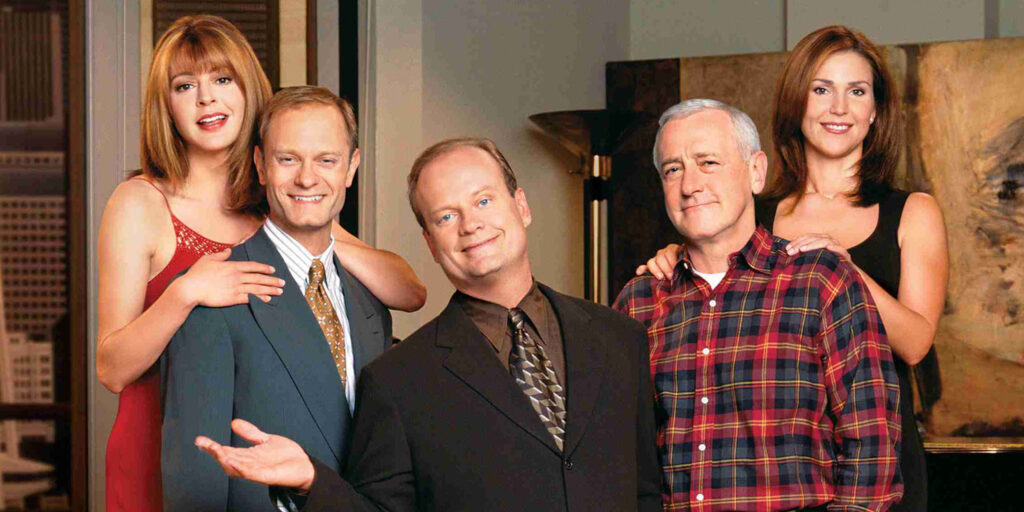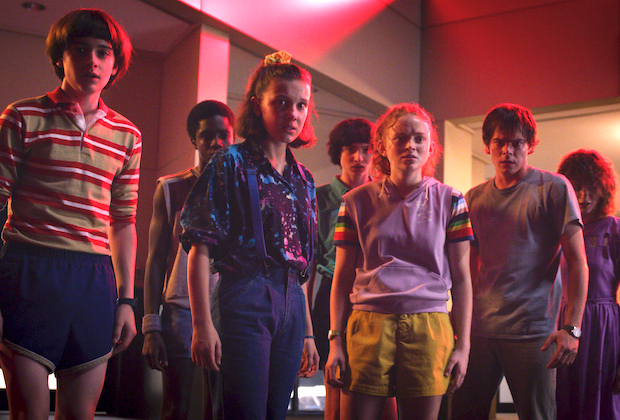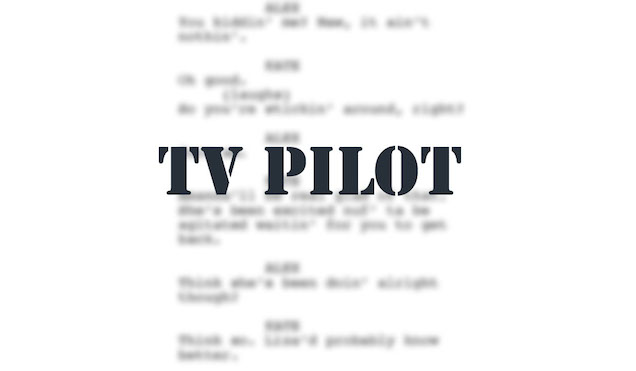
How To Write A TV Pilot
Today every home has a television facility worldwide, and now it has become more than watching movies with HBO, Netflix, etc. It seems like television writing commonplace. TV writing is a regular paying job and one of the best storytelling worlds where people even freelance. But unlike film writers, tv writing can be done by a team of people, not one person. The fact is that people who take course classes for screenwriting start with tv pilots as it is essential to know how to write a tv pilot?
It’s hard to know where you must start from, but the answer is writing a tv pilot, so you will find out if you can tell a story.
What Is A TV Bible?

Right now, your only concern should be how to write a TV pilot. Don’t stress over writing ten episodes for an entire season. You have no need for a show bible right now.
An outline is what you’ll need to write, which is a breakdown of the story and characters. Grab interest with the pilot tv show before turning your attention to the TV bible. It’ll be something you give to people when they need something more concrete. There will be examples of a TV bible later in this post.
Let’s get started by writing a pilot script.
Come Up With Your Concept
The real work begins after you’ve established yourself in the genre that you write and have read several TV pilot show scripts.
The idea that you only get better by writing everyday only makes sense if you understand what to write.
If aspiring writers understand that a pilot must be original, interesting and conflict filled, then why do so many specs lack these essential aspects?
It’s because writers take this advice and never put it into action. They don’t utilize these things in order to find out if it makes their script strong enough. That’s what we’re going to take care of in this section.
Concept is everything.
TV pilots don’t get greenlighted because the readers, producers, and execs don’t like the concept from reading the logline or from reading the script.
Whether you have a TV pilot episode already written, or if you intend to begin one, you have to make sure you have a great concept and logline.
Be honest.
Step one is writing out the logline to your pilot TV series and be honest when you answer these questions:
• Is conflict inherent in this idea?
• What separates this from similar shows?
• What are the goals of each character and what’s interesting about them?
• Is this an idea that will stand out from the pack in the marketplace?
• Would you be comfortable pitching it to a producer?
• If you could get your dream show produced, would this be it?
• If you heard about this show, would you watch it?
These questions will clear up any originality and conflict problems if they exist. For example, picture have to pitch to a producer in 30 seconds face to face. Would you be completely confident doing that?
If not, your script could use a rewrite.
I get that being objective with your own work can be really hard. The logline may be alright, but is “alright” good enough? Is it good enough to begin writing the pilot?
You might think your idea’s not up to snuff, but in reality, it’s a great idea that you haven’t started writing yet.
That’s why your own judgement shouldn’t be what you solely rely on. Get feedback from other people — specifically writers that work in TV.
Get feedback.
Ask someone in the industry what they think of your idea. Get them to be objective by saying, “I’m not married to this idea so you can be totally honest.”
If you don’t have contacts in the industry, ask friends and family. Make use of Stage 32 by putting your logline on there or go to a script consultancy for script coverage. You can even get coverage on your scripts right here in the script coverage section.
If you have the guts, try asking strangers in coffee shops. This will get your a very straight response to your idea. If they want to know the next story or wish they had created the idea themselves, then you’re onto something. If they’re not feeling it, then you have more work to do.
Be sure there’s enough conflict in your TV pilot.
There can never be too much conflict in a TV pilot episode. Go back to the logline and think about how to make the conflict more exciting. For the core concept in television, you can break the idea down like this:
Protagonist + Story World = Conflict
All three elements should look alike and feed off one another. Being placed in this world, the protagonist should have the most to lose.
They protagonist should suffer the most from this conflict and the one who goes through the most action trying to solve it.
Examples.
Let’s check out Frasier, Stranger Things and Sharp Objects for examples:
Frasier.

Frasier being a white collar snob is perfect for being in a world living with his blue-collar father, dog and home care provider.
If he was less uptight, it wouldn’t work because there would be no conflict between the characters. The Frasier character drives the action, trying to solve his many problems.
Stranger Things.

Three imaginative boys are perfect characters to have one of their best friends abducted.
If they were in an adult world as grown up UFO hunters, the concept wouldn’t be as interesting since they’d be familiar with extraterrestrials. They’re the main characters that drive the story as they search for their friend.
Sharp Objects.

The self-harming alcoholic reporter, Camille is the ideal character to have to return to her hometown in order to report on the murder of a young girl and move back in with her crazy mother.
If Camille had a great childhood and was a normal reporter, then going back home to report on this case wouldn’t generate any conflict for the show.
What Is A TV Pilot?

A tv pilot is the very first episode of a television series. A writer will submit a spec during the winter months just before pilot season for networks. Pilot season is a time of year where the networks receive new scripts and decide on whether they want to go forward with producing them.
Then they watch the final product and make another decision on whether they want to go forward with programming them for their network. This period lasts from January to May with the annual upfronts being the conclusion.
The upfronts is a gathering held by network executives, which is attended by major advertisers. They buy the advertising space upfront in person. This is heavily influenced by how the advertisers feel about the new shows. A well written show can fetch great advertisers which brings in more money.
1. Determine your TV pilot
You should have full knowledge about the tv pilot and find out what type of writing you are outlining as there are four types such as serial, episodic, anthology, and mini series.
(i) Serial
This TV pilot is a type of serial writing like a novel series, movie series in the central plot, and the entire show’s duration though it’s a part of what makes coming up. It’s a classic drama.
(ii) Episodic
Episodic means TV series, but the events do not affect the next ones, nor does the episode’s main conflict continue to the next one. There could also have to change or to replace characters or the world-changing moments. Most episodic series consists of adventure, comedy, and action, depending on the format.
(iii) Anthology
It is a type of TV series different from the above two means each season or episode is a news story or set of characters is presented but under the same theme and world.
(iv) Mini Series
This type of TV writing is limited and only average about ten episodes or so though there is no set number. Hence, a story is told in one season with no promise of a following season or connection. It’s like a novel series, each chapter coming to close the final episode. Before moving onward to how to write a TV pilot, you must explore your characters, themes, and story by jotting down ideas and plot lines.
2. Choose writing duration you work on
The time duration of writing a TV pilot is necessary to note whether it would be half an hour-long serial or an hour serial to show. There are categories divided by genre such as (comedy, drama, action, and documentary), so half an hour can be a comedy, and an hour can be a drama. So it depends on the writing of the TV pilot, and essentials keeps the reader hooked with the climactic and engaging end.
-Thirty Minute
Whether you are writing a show for premium cable or another network, your episode must depend on half-an-hour duration without commercials. If the pilot is eight pages, it may take 8 minutes to screen the script, but no worries.
Act 1
Now divide half an hour duration to the three acts; one is supposed to be an introduction as it will build tension or end on a cliffhanger. You will take around half to a third of the episode writing two acts and three acts, then take one-third of the serial in the introduction.
Act 2
When the show of half an hour consists of a two-act version, now it’s time to place your characters in challenging mode. Most TV leans toward the third act, but it would be enough to stick with a 2 act show in thirty minutes.
Act 3
The resolution occurs with the continuation of the characters dealing and solving the conflict in the final act of half an hour.
-Sixty Minute
Remember, timing matters a lot in a TV pilot, so make sure you distribute timing to act writing. One-hour TV episode can have four to five acts and a teaser, and a tag on the beginning and end. Since depending on the networks and its commercial, the script must be between 47 minutes to one hour, and it will be around 50-60 pages.
Teaser
The teaser is a hint to hook your audience with the tv show using the grand conflict as there is no rule as to what is shown. Though, the average page length is three pages
5 Acts
Everything will be the same, as the half an hour duration distribution of writing like introduction, conflict, engagement, low and high points, conflict reaction, and the last subplots. While learning how to write a TV pilot, an hour series does not require a tag like a teaser.
3. Premise episode or an episodic writing
Premise pilot is like writing a feature film; the inciting incident is the first episode’s main focus. The episodic plot is much like an episodic TV show where you emulate a ‘day in the life’ of a character. If you are writing a limited or anthology series, it will be a premise episode; if it’s an episodic or serial show, things can be changed.
4. Outline your story with A plot, B plot, C plot
When you finish decided the show structure, you can start plotting the story outlines with plot A, B, C, and so on and plugging them into each act. There is no limit as to how many subplots you can have. Though, if you still are unaware where to start, then write down the outlines of each plotline separately and plug it into the structure. It’s all about balancing the TV pilot, and the show must be well-balanced with accurate and perfect timing.
5. Start writing—How to write a TV pilot
Hopefully, you may have understood all the technical things, and now it’s time to write with all your hard work. If you are new to screenwriting, it would be recommended to go through step to step to pause after every scene or act break and check the writing. If you think you are bold enough, then continue writing the episodes and see how they track various plot lines by the minute-to-minute method. You can check the clarity of writing when you finished the screenplay.
Focus On Why You’re Writing It
You might have a pilot that you’re working on or have an idea of the of the show that you want to make. The main thing about writing a pilot is that you have to know why you want to write it.
Reasons like these are often given by writers as to why they want to write a TV pilot episode:
• “I need one for my portfolio.”
• “Writing a TV show is easier than writing a feature.”
• “I want to sell it as quickly as I can.”
• “30 pages for a sitcom is that much to write.”
Keep in mind that if you’re actually passionate about television, you’ll stand a better chance at actually selling your pilot.
Passion + Persistence.
The passion for your project will be evident through your writing if you’re excited and believe that it belongs on the small screen.
Even though pilots for comedy are only 25-35 pages long, it doesn’t make them any easier to write. As a matter of fact, comedy is hard to write. You need to be sure that you’re in it for the long haul as you’ll have to do months of rewrites.
You’ll have to do this process for multiple episodes without getting bored writing for the same characters.
You should really attempt to pinpoint why you want to do this. Is it because of the the reasons listed above or because you really want to tell stories that last several seasons?
Do you think you were put on this earth for this?
Sticking with the comedy pilot example, have you watched sitcoms since you were a child? Can you repeat lines from your favorite episodes? Do you like saying one-liners with friends? Do you follow your favorite writers to each project that they work on?
If you answered “yes” to most of those questions, then you have the passion and dedication to make it as a TV comedy writer.
It’s the golden age of television at the moment for writers, so don’t think twice about getting a piece of the pie.
Conclusion
The article above has explained all the techniques used to write the TV pilot from the beginning until the end, so you can now write one for yourself. It depends on your wish and story structure whether to write episodic or premise pilot writing.
Leave A Comment
As you know, this site is dedicated to helping screenwriters. To help out our fellow screenwriters, leave a comment to make the content easier to find.
Related:
- How To Write A Good Climax In Your Screenplay
- How Much Do Writers Make?
- Do You Need A Degree For Screenwriting?